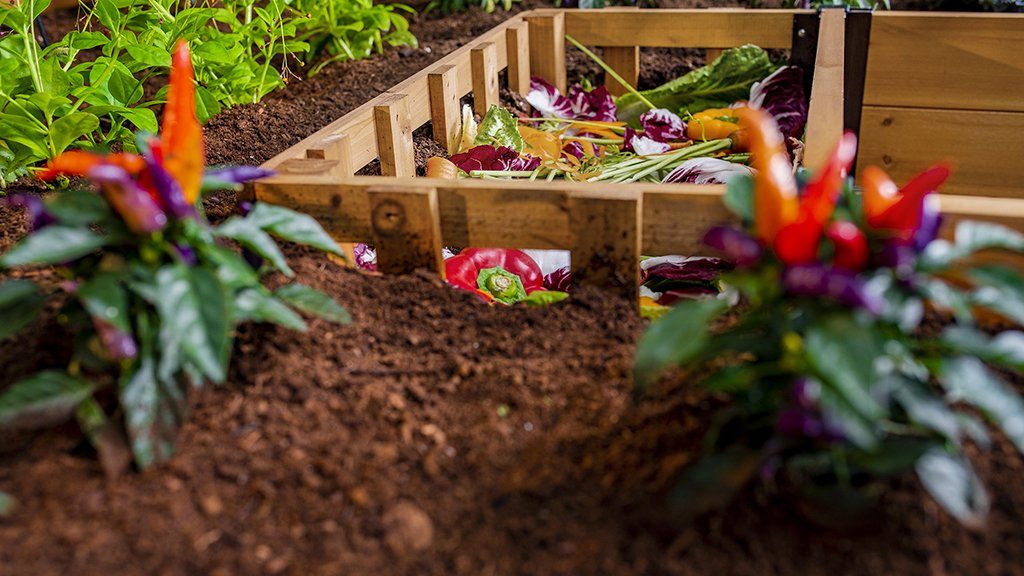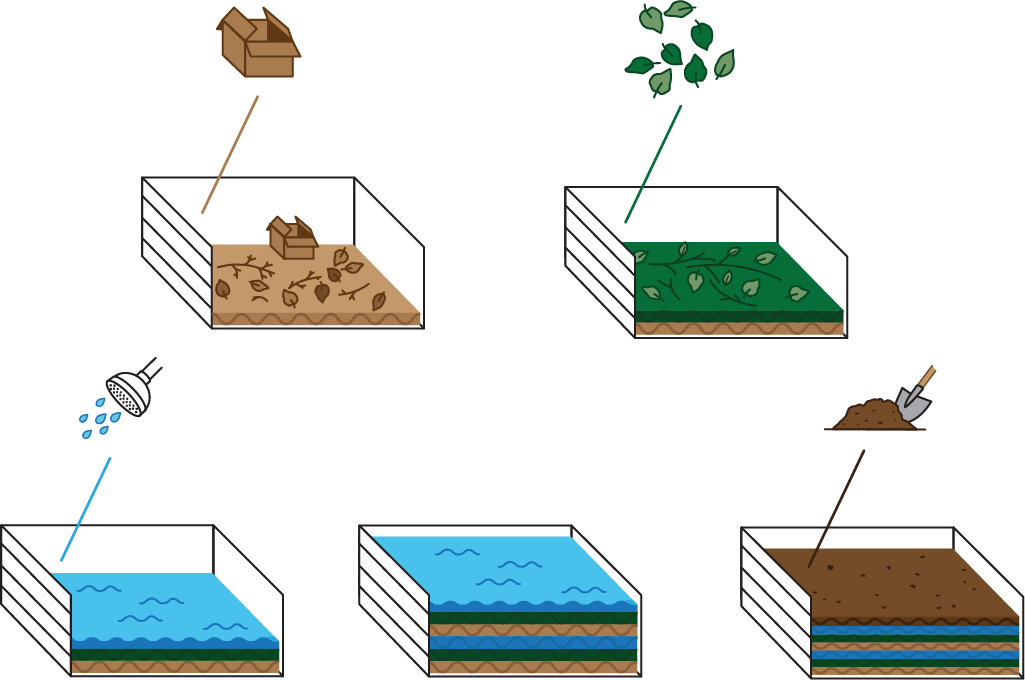Composting 101 - Everything You Need to Know!
Food waste accounts for over 22 percent of all waste that goes into landfills (source), that’s more than any other single material in our everyday trash. Thankfully, there is a way to sustainably dispose of your household waste, while simultaneously enriching your garden soil. It’s called ‘Composting'.

What is composting?
Simply put, composting is the practice of creating compost.
This process recycles various organic materials (i.e. kitchen food scraps) otherwise regarded as waste products and produces a material called compost (technically ‘’humus’) that is like rocket fuel for your soil.
How do I make compost?
Making compost is like fermenting beer: you need bacteria, air moisture and warmth so the magic – the breakdown of compost ingredients (your kitchen waste) – can happen.
Compost requires five basic ingredients: Water, Oxygen, Microorganisms such as bacteria, molds and fungi, as well as...
Experts suggest a 30:1 ratio of carbon to nitrogen organic materials when making compost.
The end result is a material we call “Compost”. It’s an organic nutrient-rich fertilizer that nourishes your soil and helps your garden grow.
What not to compost?
Who benefits?
So how does the keyhole composting garden work?
Inspired by the African keyhole gardening technique, a Keyhole Composting Garden lets you compost household waste and grow vegetables in the same garden.
A central compost basket is used in the garden bed to conveniently place your daily kitchen scraps. This household waste then goes through the composting process and is transformed into food for your soil.
It all happens simply and conveniently in one place. It is the perfect solution for those who want to do less and grow more.
How do I start?
Start with healthy soil.
We advise that before you start composting, or planting, you create some healthy soil.
Let’s cook up some soil! - It’s as simple as brown, green, blue, brown, green, blue, brown…

You can use the cardboard packaging your garden arrived in!
Once the soil is ready, top it off with a layer of soil mix, plant your garden and begin the composting process. Simply deposit your daily kitchen scraps into the central basket of the keyhole composting garden.
How do I look after it?
You really don’t have to do very much. We advise you to turn the compost in your basket every 2 or 3 days to let air circulate and speed up the decomposition of organic materials. Make sure the pile does not get too damp. Any less water and the microbes can't thrive. Any more water and they will suffocate because air can't move as well.
FAQ’s
If your compost basket smells sour or rotten you've probably got too much water and not enough air. If it smells of ammonia, you've got too much nitrogen ("greens") and not enough carbon ("browns").
No one wants rodents rummaging around their garden bed. This happens mainly due to the wrong materials being deposited. It’s important that you do not put meat or dairy in your compost basket. These materials rot quickly and the smell can attract unwanted guests. We also suggest keeping your compost a little moist (as much as a wrung sponge), so it's not a place any animals would want to live. Some gardeners use peppermint essential oil as a deterrent. Dilute it with water and spray it or drip the oil directly on the dry contents of your compost once a week or so.
A family of 4-5 people should be able to dispose of your household scraps daily, without filling up the basket.
Shredding or grinding organic materials is not essential, but it does help speed up the composting process. Egg shells are a material that many gardeners grind before disposing, as they can take a while to break down.
It's best in the shade because the compost is less likely to dry out: dry compost does not decay.
If you live in an area where temperatures remain above freezing your compost pile will continue to break down. If, on the other hand, you live in an area where temperatures fall below freezing for part of the year, the rate of decomposition will slow and if the nitrogen level is too low, the pile may freeze completely. In this case it may be worth composting seasonally.
Flies are attracted to rotting food on top of your compost. To avoid this, mix and bury your food waste within the existing material in your composting system, or add a layer of brown materials such as leaves, shredded paper, or sawdust on top of each layer of food waste.
Wastes from plant eating pets, such as horses, rabbits, gerbils, hamsters, guinea pigs or birds, can be safely composted at home. Just remember that all pet manures are “green” materials, high in nitrogen so they need to be balanced with “brown” materials. Waste from meat eating pets such as cats or dogs should not be composted for use in the garden because of the potential to spread disease.








